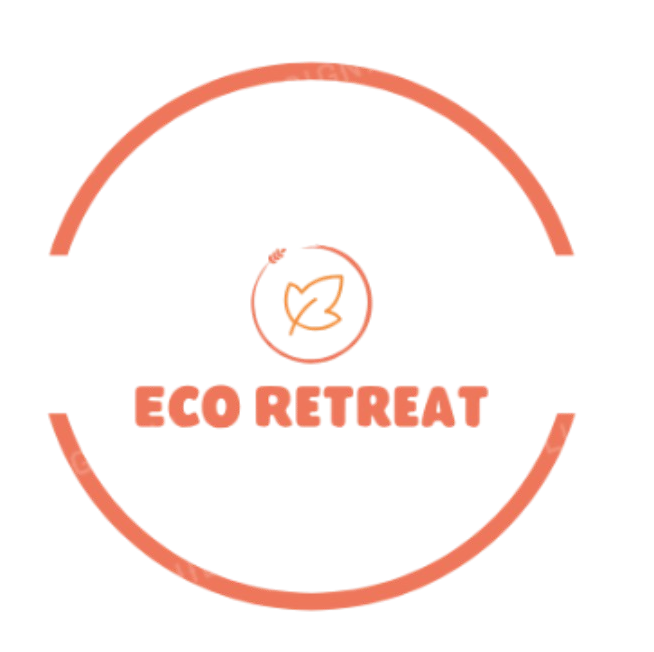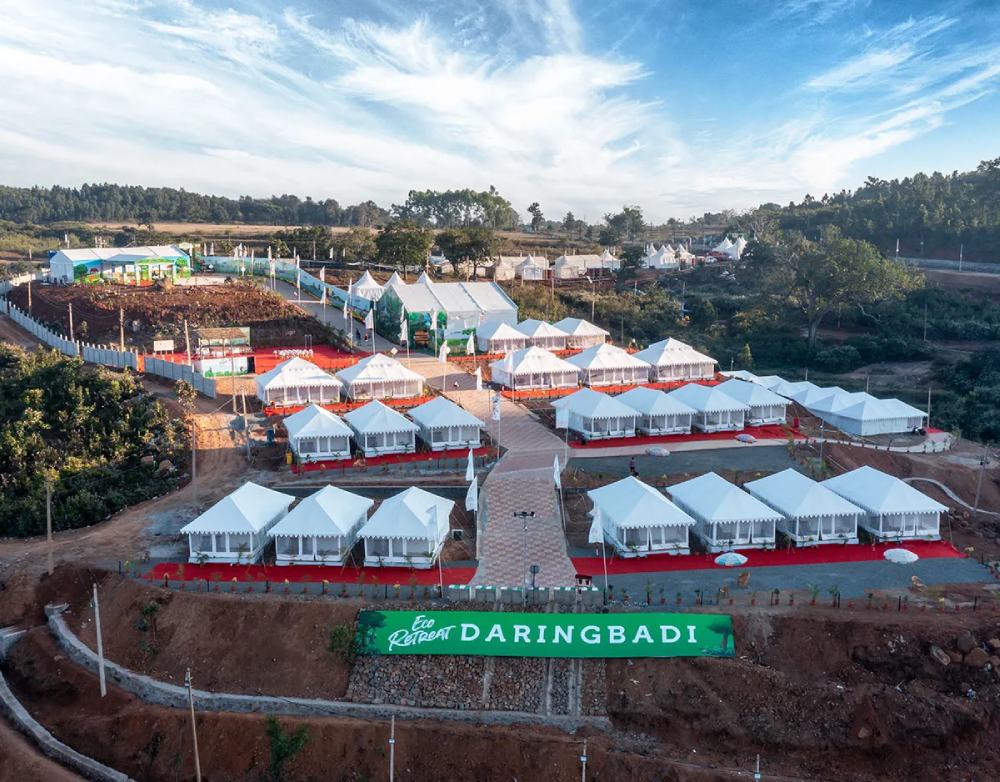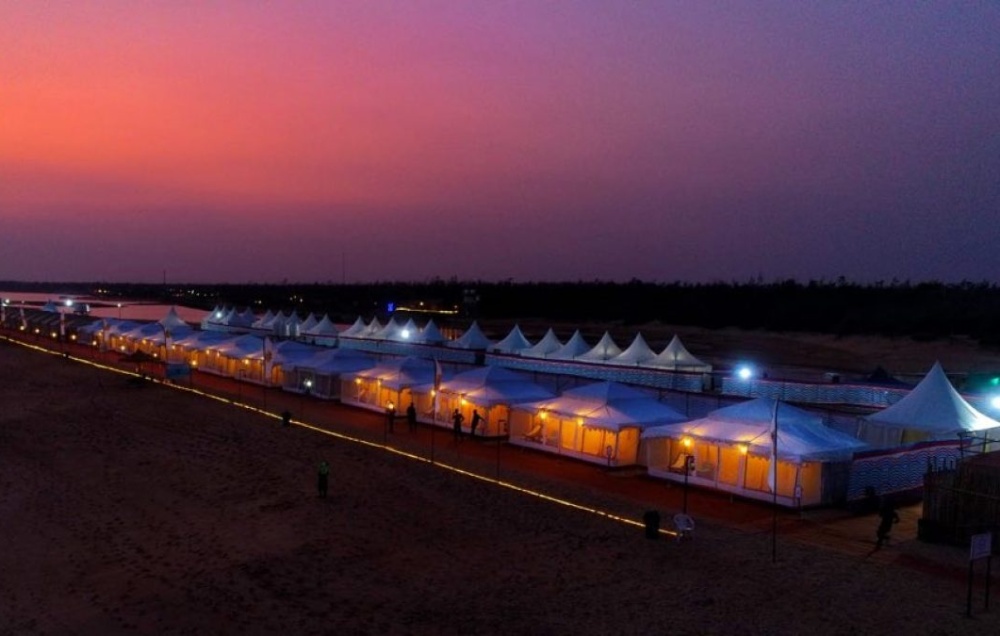Ec retreats and ethical fashion are gaining momentum as the two key arms of this move towards sustainable lifestyles in India. Be it someone who loves going out in the middle of nature on holiday, or someone with a deep interest in fashion with consciousness, read on to find how eco retreats and sustainable fashion are reworking holidaying and dressing.
Both eco retreats and sustainable fashion support environmental and social responsibility. They afford eco-conscious consumers a chance to experience something meaningful-be it reconnecting with the beauty of nature or knowing which clothing choice does not conflict with their ethical code. Let’s jump into how eco retreats and ethical clothing practices are transforming the Indian travel and fashion industries in this discussion.
Part 1: Eco Retreats – A Sustainable Travel Experience
1.1 What Are Eco Retreats?
Eco retreats are a class of places that focus on harmonious living with nature, environmental protection, and showing ecological practices. While most resorts during vacation have absolutely no purpose of ensuring the environment is protected, eco retreats make a conscious effort not to harm it and work out all ways not to have carbon emissions and waste. Part of the culture in eco retreats is respect for the local culture and ecosystems.
In India, eco retreats come in forests, mountains, beaches, and even deserts. These retreats offer sustainable options to travelers who seek tranquility while actively participating in conserving nature.
1.2 Key Features of Eco Retreats
Eco-friendly infrastructure: Most of the eco retreats use natural or recycled building material, reduce plastic use, and implement green energy solutions-like solar or wind.
Sustainable food practices: Eco retreats usually would have organic and locally sourced food on the menu. Not only does this support local farmers, but it also reduces the carbon footprint associated with transporting the food.
Water Conservation and Waste Management: Eco retreats follow the approach of water conservation by harvesting rainwater and reusing greywater. They also have efficient waste management practices, composting, and recycling.
Cultural Immersion: Eco retreats give a great exposure to the local community through cultural programs, handicraft workshops, and nature conservation activities.
Least disturbance to the environment: In these resorts, the motive is to sustain the local ecology, creating less deforestation and killing of wild animals. In fact, few among them have wildlife sanctuaries within their campuses.
1.3 Popular Eco Retreat Destinations in India
1.3.1 Kerala’s Backwater Eco Lodges
The backwaters in Kerala are famous, and the ecology retreats here offer opportunities to stay in environment-friendly cottages or houseboats. These resorts focus on solar energy, organic farming, and traditional Kerala-style architecture. You will be able to have experiences of Ayurveda and Wellness, enjoy organic food, and join in the community-based conservation activities.
1.3.2 Spiti Valley, Himachal Pradesh
It’s known for its rugged beauty and Buddhist culture, besides increasingly having eco-friendly stays. The tourists also get to experience sustainable living in traditional mud houses solar-powered and heated by environment-friendly means. Guided trekking, meditation, and discussions with the local communities practicing sustainable agriculture are provided.
1.3.3 The Andaman and Nicobar Islands
Eco Retreats in Andaman is a judicious combination of pristine beaches and sustainability. Many of them have renewable energy, snorkeling, diving at protected marine sites for ocean conservation. These islands provide opportunities to understand the marine ecosystem and participate in the conservation of coral reefs.
1.4 Benefits of Eco Retreats for Indian Travelers
Reconnect with nature: Eco retreats give you a different way of unwinding yourself, away from the hustle and bustle of cities.
Foster mindfulness: Most retreats use yoga, meditation, and wellness programs to help customers connect themselves with their inner self and also draw closer to nature.
Support sustainable tourism: Eco retreats support eco-friendly activities and give ways for local people to enhance their economy with the revenues that come with tourism.
Also Read- Digital Detoxing at Eco Retreats: Unplugging and Reconnecting
Environmental awareness: To live sustainably means that even on short trips, travelers are more ‘green’ conscious and can apply the same principles to their everyday living.
Part 2: Sustainable Fashion – Ethical Clothing Choices
2.1 What is Sustainable Fashion?
It may also be termed as ethical fashion, sustainable fashion, which guarantees environmentally friendly design, production, and consumption of such products. Therefore, in consideration, it ensures that the lifecycle of a piece of clothing is taken into account.
Traditionally, sustainable fashion to Indian consumers meant traditional craftsmanship, a livelihood provided to local artisans, and the use of environmentally friendly materials. It calls for conscious purchasing and raises questions of the fast fashion industry that fosters environmental degradation and the exploitation of workers.
2.2 Key Principles of Sustainable Fashion
Eco-friendly materials: The brands are using organic cotton, bamboo, hemp, linen, or other natural fibers, which result in minimal environmental impact during production.
Ethical Production: Brands for sustainable fashion make sure that workers are treated fairly, paid a living wage, and work in safe conditions. That becomes even more important in India, where so many garment workers labor in dismal conditions.
Waste Reduction: The practices include zero-waste production methods, reusing fabric scraps, recycling old clothes, or making new garments from them.
Slow Fashion: While fast fashion urges people to wear and discard trendy clothes with time, slow fashion is all about producing timeless, durable pieces that can be used for years.
Local and Artisan Production: Many sustainable fashion brands join hands with local artisans to preserve traditional craftsmanship, minimize the emission of carbon dioxide in the transportation of goods, and boost local economies.
2.3 Indian Sustainable Fashion Brands to Explore
2.3.1 No Nasties
No Nasties is one of India’s first sustainable fashion brands. Starting from their clothes being made from 100% organic cotton, their entire value chain follows fair trade certification norms. The brand espouses transparency in production. The brand offers clean and comfortable minimalist wear for men and women.
2.3.2 Nicobar
Nicobar: A lifestyle brand from India that focusses on sustainable materials and ethical production methods. It offers contemporary wear, homeware, and accessories, using environmentally friendly fabrics. Its minimalistic design aesthetic takes inspiration from India’s cultural heritage.
2.3.3 Doodlage
Doodlage is known for its innovative approach to upcycling and recycling fabric waste. It makes stylish garments out of textile scraps and leftover fabrics, turning what could have been considered waste into beautiful, wearable art. Their commitment to zero-waste production is changing the face of fashion manufacturing in India.
2.3.4 Anokhi
Anokhi is a brand based in Jaipur, specializing in hand block-printed fabrics. Their clothes are made from eco-friendly dyes and the traditional printing technique that gives work to local artisans. It fuses modern designs with traditional Indian craftsmanship.
2.4 Why Ethical Clothing is Gaining Popularity in India
As Indians are becoming more ecologically conscious, there is an increasing movement toward sustainable fashion on various counts:
Increased awareness of environmental issues: More information on how hazardous fast fashion is to the environment has made consumers head towards sustainable brands that advocate for environmental-friendly practices.
Supporting local artisans: India has a rich history of textiles and handloom weaving. By choosing sustainable apparels, consumers are supporting local artisans and preserving traditional crafts.
Quality and comfort: Ethical brands use high-quality, durable materials that are comfortable and longer-lasting compared to fast-fashion alternatives.
Transparency and ethical choices: More and more, consumers increasingly want to know where their clothes are made, how they are made, and whether workers making clothes have good working conditions. The sustainable fashion brands are transparent in their supply chain, which appeals to ethical buyers.
2.5 How to Incorporate Sustainable Fashion into Your Wardrobe
For Indian consumers interested in making more ethical choices, here are ways to build a sustainable wardrobe:
Invest in pieces that are timeless: Go for classic and versatile items that can be worn in and out of different settings rather than very trendy items that will eventually go out of style.
Buy local: Support Indian artisans and buy fabrics handwoven, block-printed, or hand-dyed from the local markets or from sustainable brands.
Quality, not quantity: It is advisable to purchase fewer, more expensive clothes than to spend money on a lot of low-priced clothes that will last less time.
Re-use and recycle: Extend the lives of clothes by donating, recycling, or upcycling old clothes. Many brands give discounts when you return rags to them for recycling.
Thrift or second-hand shopping: Shop in stores or websites dealing in used clothes. Thrifting manages to reduce demand for new clothes and helps in reducing waste.
Take good care of your clothes: Good care for clothes can allow them to last long. Follow the instructions on washing and care so that they do not wear out.
Part 3: Where Eco Retreats Meet Sustainable Fashion
The philosophy of eco retreats and sustainable fashion shares a common bond in the form of environmental conservation, ethical responsibility, and conscious living. A number of such eco retreats in India further the concept of sustainable fashion by encouraging guests to embrace minimalism and shop from local artisans or eco-friendly brands during their stay.
3.1 Promoting Conscious Fashion Choices at Eco Retreats
Many eco retreats offer guests the facility to participate in traditional textile crafts workshops, clothes-making workshops, or merely visiting the artisan markets. Here’s how eco retreats can inspire sustainable fashion choices:
Workshops on Traditional Crafts: Handloom weaving, natural dyeing, or block printing workshops can let guests appreciate the art and time invested in creating ethical clothes.
The collaboration with artisans at the local level: This ranges from helping the locals by working with artisans and showcasing their art, handwoven, or eco-friendly products to guests.
Sustainable retail spaces: There are various eco retreats that have on-site shops which sell ethically produced garments and accessories using locally available materials. These things can be taken as eco-friendly souvenirs.
Eco retreats encourage a minimalistic sense of fashion through their design and activities. Many guests are encouraged to bring only enough clothing and to use only sustainable material clothes for an eco-friendly lifestyle.
3.2 How Indian Travelers Can Combine Eco Retreats with Sustainable Fashion
For ecologically conscious Indian travelers who like to combine eco retreats with ethical fashion, here are a few ways you can make your next outing more green:
Pack light, eco-friendly clothes: At the eco retreat, bring sustainable clothes made from organic or recycled fabrics. Pack only what you need; versatile pieces that could be used in different instances.
Shop local: Go for local communities by purchasing ethically produced garments from artisans who live close to your retreat destination. You go back home with unique clothes, adding money into the economy of that local area.
Attend workshops on eco-fashion: These have become quite prevalent and will teach you traditional textile skills like weaving, dyeing, and handloom printing. Experiences like these will further increase your respect for ethical fashion.
Conscious fashion brands to choose: When buying new clothes for the trip, choose items from Indian brands in sustainable clothing that focus on eco-friendly materials and fair labor practices.
Conclusion: A Sustainable Future for Indian Travellers and Consumers
This invokes a deeper sense among Indian consumers and travelers, especially as the world is moving to greener pastures of sustainable ecology. Be it eco-friendly travel across India’s vast natural beauty or making conscious choices with ethics in clothing in everyday life, these support eco-friendly policies toward a better future.
Also Read- Why Choose an Eco Retreat for Your Next Vacation
On Eco retreats, you contribute to the conservation of natural ecosystems and improvement in the living standards of local communities and practise tourism in a mindful way. Similarly, in fashion, you can look amazing and feel great knowing you support sustainable fashion by forwarding fair labor, reducing waste, and preserving resources.
Both these pillars of sustainability take us closer to lighting the path towards a tomorrow when we can see and enjoy traveling and looking good without harming the environment or being antisocial. We, as Indian consumers, can drive this change to consciously make choices that are good for us and the planet.




